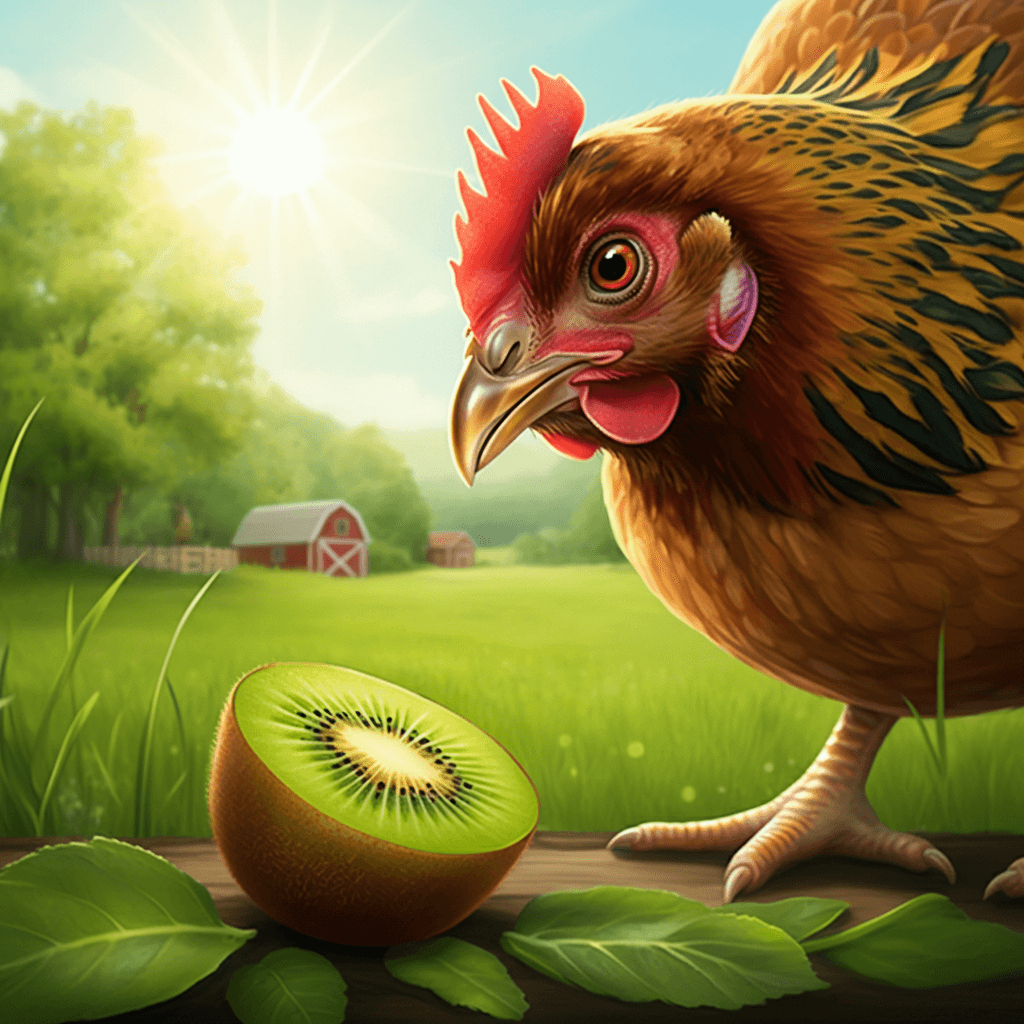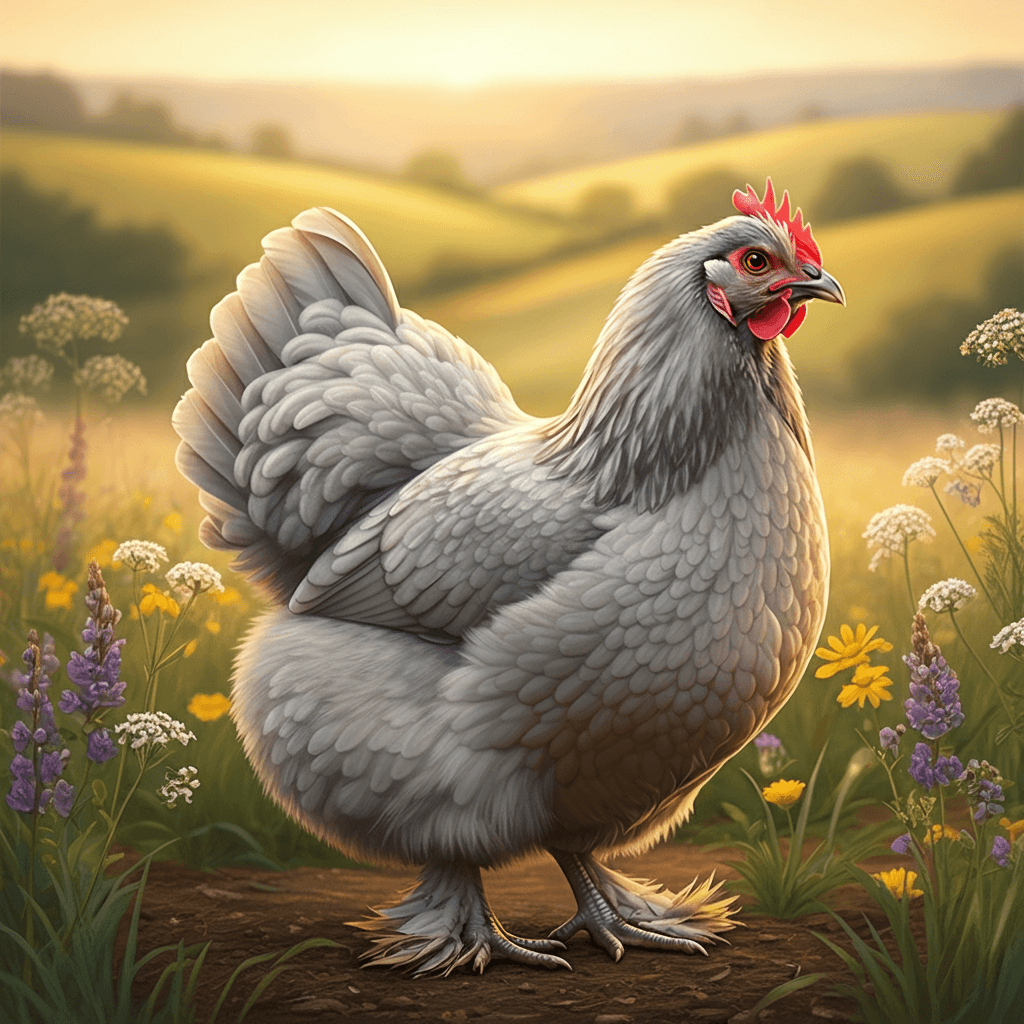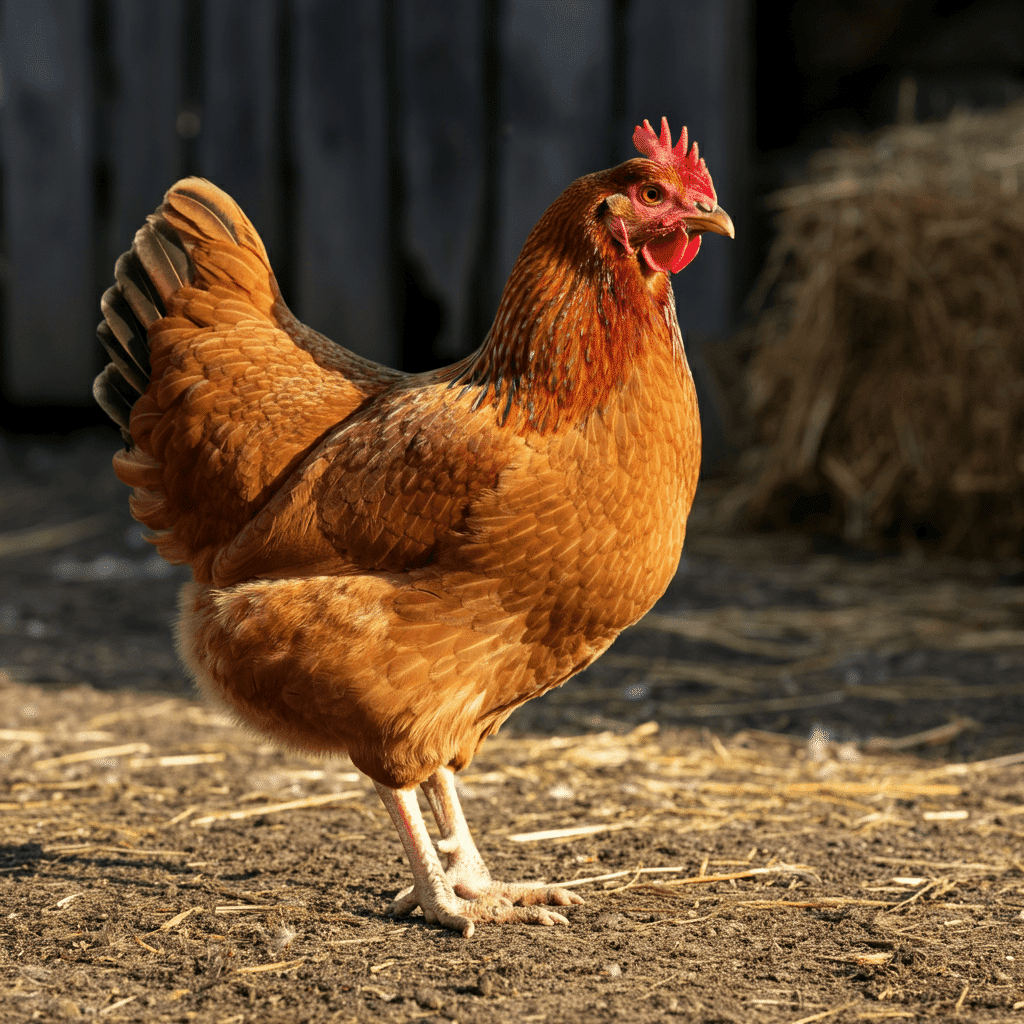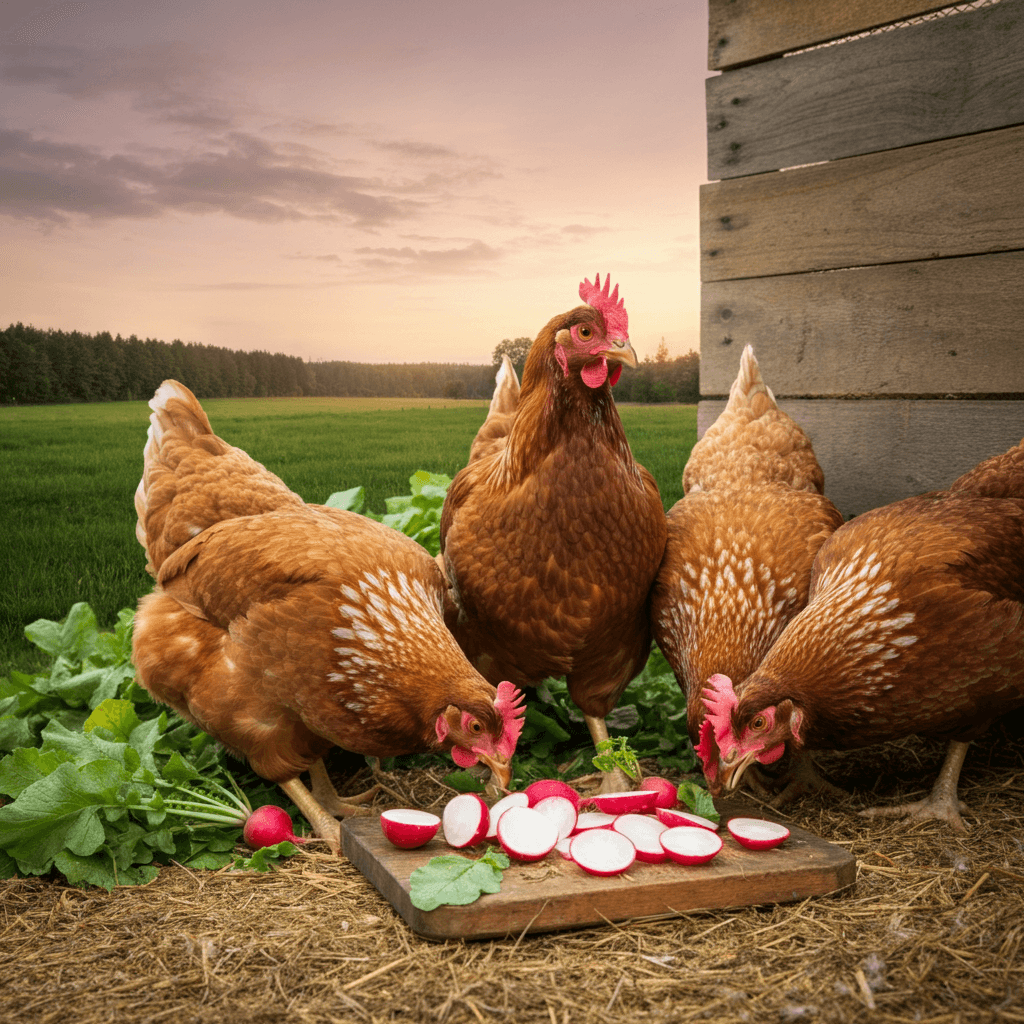Can Chickens Eat Kiwi: A Comprehensive Guide
Understanding Chickens’ Dietary Needs
Chickens are omnivores, meaning they thrive on a varied diet that includes grains, greens, seeds, and occasional fruits. A balanced diet is vital for their health and productivity. Proper nutrition helps in egg production, feathering, and overall well-being.
It’s essential to provide chickens with:
- High-quality poultry feed: This should be formulated to meet their dietary needs based on their age, breed, and purpose (meat or egg production).
- Fresh water: Always ensure they have access to clean water, as it plays a crucial role in digestion and hydration.
- Grit and calcium sources: Grit aids in digestion, while calcium is necessary for strong eggshells.
As responsible poultry keepers, understanding the dietary needs of chickens can help ensure they lead happy and healthy lives. Now that we have a grasp of what makes up a nutritious diet for chickens, let’s delve into the intriguing world of kiwi fruit.
Introduction to Kiwi Fruit and its Nutritional Value
Kiwi, often hailed as a superfruit, is known for its vibrant green flesh, edible seeds, and tangy flavor. It is not only delicious but also bursting with nutrients that can potentially benefit chickens. While the thought of feeding kiwi to chickens may seem unconventional, it’s worth exploring its nutritional profile.
Kiwi is rich in:
- Vitamin C: Essential for immune function and can help keep chickens robust and healthy.
- Vitamin K: Plays a vital role in blood clotting and overall bone health.
- Fiber: Aids in digestion and ensures the gastrointestinal tract functions properly.
- Antioxidants: These help combat oxidative stress, potentially promoting better health.
An approximate breakdown of kiwi’s nutritional content per 100 grams is as follows:
| Nutrient | Amount per 100g |
|---|---|
| Calories | 61 |
| Protein | 1.1g |
| Carbohydrates | 14.7g |
| Fiber | 3g |
| Fat | 0.5g |
| Vitamin C | 92.7mg |
| Vitamin K | 40.3mcg |
Given these nutrients, kiwi can be a delightful, healthy treat for chickens. However, as with any addition to their diet, it’s crucial to feed kiwi in moderation. While it packs a punch when it comes to vitamins and minerals, chickens’ digestive systems can be sensitive to new foods.
For poultry enthusiasts and chicken keepers pondering, “Can chickens eat kiwi?” the answer leans significantly toward a well-informed yes, provided it’s introduced properly and thoughtfully. Through a deeper understanding of kiwi’s nutritional benefits, chicken owners can enhance their flock’s diet while ensuring they stay vibrant and healthy.
Factors to Consider Before Feeding Kiwi to Chickens
Risks and Benefits of Feeding Kiwi
When contemplating whether to introduce kiwi into your chickens’ diet, it’s crucial to weigh both the benefits and potential risks. Kiwi can provide an array of nutrients, but every new food comes with its considerations.
Benefits of Feeding Kiwi to Chickens:
- Nutritional Boost: As outlined earlier, kiwi is packed with vitamins, especially vitamin C, which is beneficial for immune health. It also offers dietary fiber, promoting digestive health.
- Hydration: Kiwi has a high water content, which can help keep your chickens hydrated, especially during hot weather.
- Variety: Chickens thrive on variety, and introducing different fruits can enhance their overall diet and interest in food.
However, like any new food, there are risks to be aware of:
- Digestive Upset: Chickens’ digestive systems can be sensitive. Introducing kiwi too quickly can lead to upset stomachs or diarrhea.
- High Sugar Content: Kiwi does have natural sugars, so overfeeding can lead to obesity or other health issues, particularly in sedentary birds.
- Pesticide Residue: If not washed thoroughly, kiwi can carry pesticide residues. It’s essential to ensure that the fruit is pesticide-free before feeding.
Personal anecdotes from fellow chicken owners reveal mixed experiences. Some swear by the benefits of incorporating kiwi as a treat, while others caution against overindulgence. As with many things in life, moderation is key.
Recommended Kiwi Intake for Chickens
Determining the right amount of kiwi for your chickens can help ensure they reap the benefits without any negative side effects. Here are some guidelines:
- Start Small: When introducing kiwi for the first time, consider beginning with a small piece—perhaps a quarter of a kiwi. This will allow you to gauge how your chickens react.
- Limit Frequency: Kiwi should be treated as an occasional treat rather than a staple food. Aim for no more than two to three times a week.
- Portion Size Table:
| Age Group of Chickens | Recommended Kiwi Serving Size |
|---|---|
| Chicks | Not recommended |
| Pullets | 1/4 of a kiwi |
| Adult Chickens | 1/2 of a kiwi |
Always monitor the chickens after feeding them kiwi to ensure they digest it comfortably and without issues. If any negative reactions occur, it’s best to discontinue feeding until you consult with a veterinarian.
By being mindful of how much kiwi chickens consume and understanding both the risks and benefits, chicken owners can introduce this delicious fruit into their flock’s diet safely. Feeding kiwi can open a world of flavors for your chickens while boosting their nutritional intake, leading to healthier, happier birds.
How to Safely Feed Kiwi to Chickens
Proper Preparation of Kiwi for Chickens
Once you’ve decided to incorporate kiwi into your chickens’ diet, the next step is proper preparation. Ensuring the fruit is safe and appealing to your flock can enhance their foraging experience. Here are some steps to follow:
- Choose Fresh Kiwi: When picking kiwi, look for firm fruits that yield slightly under pressure. Avoid overripe or spoiled fruits, as they can lead to digestive issues.
- Wash Thoroughly: Always wash the kiwi under running water to remove any dirt, chemicals, or pesticide residues. Even organic fruits should be cleaned before consumption.
- Peel if Necessary: While the skin is edible, some chickens may find it tough or unappealing. Peeling the kiwi can make it easier for them to eat. Just remember that the skin contains valuable nutrients, so if your chickens are adventurous eaters, you might skip this step.
- Cut into Manageable Pieces: Chickens peck at their food, so slicing the kiwi into small, bite-sized pieces makes it more accessible. Aim for pieces around an inch in size to prevent choking hazards.
- Serve in Small Portions: As with any new treat, start with a small amount. Place the kiwi pieces in a feeding dish or scatter them in their run as a fun foraging activity. Watching your chickens explore their environment adds joy to the feeding process!
Personal experiences from chicken keepers indicate that integrating kiwi into the diet can be a hit. One owner noted how her flock eagerly pecked at the kiwi pieces, showcasing their excitement and curiosity.
Monitoring Chickens’ Reaction to Kiwi Intake
After serving kiwi to your chickens, monitoring their reactions is crucial to ensure a positive experience. Here are some tips to help you keep an eye on how they respond:
- Observe Behavior: Watch how your chickens interact with the kiwi. Are they excited and pecking eagerly, or are they hesitant? Positive engagement usually indicates that the fruit is appealing to them.
- Check for Digestion Issues: After feeding kiwi, observe their droppings. Chickens that experience digestive upset may show signs like runny droppings or unusual behavior. If you notice any digestive issues, it may be best to reduce the quantity or frequency of kiwi servings.
- Watch for Signs of Allergies: While uncommon, some chickens may have sensitivity to new foods. Be alert for signs such as swelling, excessive pecking at themselves, or respiratory issues. If any of these symptoms appear, discontinue feeding kiwi immediately and consult a vet.
- Maintain a Feeding Journal: Keeping a record of what foods you introduce and your chickens’ reactions can be helpful for future reference. This way, you’ll know how much kiwi to offer and how well they tolerate it.
Integrating kiwi into your chickens’ diet can be a rewarding trial when done with care. By following proper preparation steps and keeping a watchful eye on their reactions, chicken owners can ensure that this delightful fruit enhances their flock’s diet, promoting both health and happiness.
Alternative Fruits for Chickens Besides Kiwi
Safe Fruits for Chickens
While kiwi is a nutritious treat for chickens, it’s always a great idea to have a variety of fruits on hand to keep their diet exciting and balanced. Many fruits are safe for chickens and can provide various health benefits. Here’s a list of some safe options that you can consider:
- Berries: Strawberries, blueberries, and raspberries are not only tasty but packed with antioxidants. Chickens enjoy pecking at these small fruits, making for an engaging feeding experience.
- Watermelon: A perfect summer treat, watermelon is hydrating and refreshing. You can give it to chickens in large chunks, allowing them to peck and enjoy it in a fun way.
- Bananas: These are rich in potassium and fiber. Chickens seem to love the sweet taste of bananas, making them a popular treat. Slice them into manageable pieces for easy consumption.
- Apples: Chickens can munch on apples, but it’s crucial to remove the seeds as they can be harmful. Apple slices provide a crunchy texture that chickens often enjoy.
- Pineapple: Fresh, ripe pineapple can be a delightful treat. Chicken owners often find that their flock relishes the sweet, juicy fruit, but moderation is key due to its acidic nature.
- Peaches: With their juicy flesh, peaches can be a delightful addition. Just be sure to remove the pit to keep your chickens safe.
Providing a variety of fruits not only enhances their diet but also keeps them stimulated. Chicken enthusiasts often report that their flocks show increased enthusiasm during feeding time when fruits are involved.
Nutritional Variety in Chickens’ Diet
When we talk about chickens’ diets, nutritional variety is fundamental for maintaining their health and productivity. Just like humans, chickens benefit from a wide range of nutrients that different fruits can provide.
Introducing varied fruits into their diet can:
- Prevent Nutritional Deficiencies: Each fruit offers unique vitamins and minerals. By incorporating a mix, you can help pay attention to the overall health and resilience of your chickens.
- Encourage Natural Foraging Behavior: Chickens are natural foragers. Providing various fruits encourages them to engage in instinctual behaviors, leading to a more enriched life. Scatter pieces in the coop or run to mimic foraging and keep them occupied.
- Boost Egg Production and Quality: A diet high in diverse nutrients can impact egg quality; healthier, happier chickens often lay better-quality eggs. Fruits rich in certain vitamins may contribute to stronger shells and richer yolks.
- Enhance Taste Preferences: Chickens can develop taste preferences, and offering a variety of options can allow them to discover what they enjoy. Over time, you might find that some fruits become their favorites!
In conclusion, while kiwi can be a delightful treat for chickens, it’s essential to explore other fruit options to ensure a balanced and varied diet. By experimenting with different fruits and observing your chickens’ reactions, you can create a fun and nutritious feeding routine that promotes optimal health and happiness in your flock. Always remember that moderation is key, and every new food should be introduced gradually. Happy feeding!
Conclusion: Ensuring a Balanced Diet for Chickens
Recap of Safe Feeding Practices
As we wrap up our comprehensive guide on feeding kiwi to chickens and alternative fruit options, it’s essential to highlight key safe feeding practices that every chicken owner should keep in mind. By ensuring that your flock enjoys a healthy, varied diet, you contribute to their overall well-being and productivity. Here’s a quick recap of best practices when it comes to feeding chickens:
- Introduce New Foods Gradually: Whether it’s kiwi or any other fruit, start with small amounts. Monitor how your chickens respond before incorporating it into their regular diet.
- Wash and Prepare Properly: Always wash fruits thoroughly and remove any harmful parts (like seeds in apples), ensuring that what you serve is clean and safe.
- Moderation is Key: Treat fruits as an occasional snack rather than the primary food source. A couple of times a week is generally appropriate to prevent digestive issues or obesity.
- Observe Your Chickens: Keep an eye on the behavior, droppings, and overall health of your flock after introducing new items. If you notice any adverse reactions, reach out to a veterinarian for guidance.
- Consult Nutritional Resources: Utilize information from credible sources to understand your chickens’ specific dietary needs, ensuring you provide them with a balanced diet tailored to their stage of life, whether they are chicks, pullets, or fully grown hens.
These practices can help you create a healthy feeding routine for your chickens, promoting vibrant health and egg production.
Importance of Variety in Chicken Feed
One of the most critical aspects of feeding chickens is ensuring they have a varied diet. Just like us, a diverse diet helps chickens thrive by providing them with all the essential nutrients they need for growth, immunity, and egg production. Here are some key points to consider regarding the importance of variety:
- Nutritional Completeness: Different foods provide different vitamins and minerals. For example, greens like spinach offer iron, while fruits like kiwi provide vitamin C. By combining multiple sources, chickens can obtain a well-rounded nutrient profile.
- Preventing Boredom: Chickens are curious animals, and offering only one type of feed can lead to boredom. Providing a mix of fruits, grains, and greens keeps their environment stimulating and enjoyable, promoting natural foraging behaviors.
- Increased Egg Quality: A diet enriched with variety can lead to healthier, more robust hens and, as a result, better-quality eggs. Layers fed a diverse range of foods often lay eggs with stronger shells and richer yolks.
- Enhanced Immune Function: A varied diet supports overall health, bolstering the immune system. Chickens fed a mix of nutrients are more resilient and better equipped to fend off illnesses.
In conclusion, providing a balanced and varied diet is crucial for happy, healthy chickens. By focusing on safe feeding practices, embracing the richness of different fruits and other food sources, chicken owners can foster a vibrant flock. Remember, your chickens’ health and happiness rest in your hands—so get adventurous, and enjoy the journey of discovering what delights your flock!




